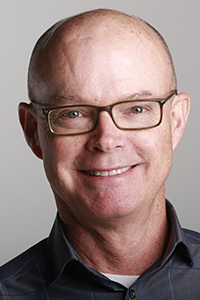Paula Heine
PsyD in Clinical Psychology
CSPP at Alliant International University, San Francisco
Q: What inspired you to go into the clinical psychology field?
A: The first part is in my own healing journey which inspired me to pay it forward. So many people helped me along the way, and I really wanted to do that for others. I felt called to action to be transparent about that and to get myself educated well enough so that I could help others. And the second piece is in recognizing that desire, I established for myself how much of a calling this career is—it wasn't just a whim. Lastly, I would say my passion is about the family because I think so much of who we are as human beings starts in our families and that's why I decided to pursue the child and family track. For me, it always comes back to that and being able to speak to how that develops and shapes people is part of my training, and what I love most about what I do.
Q: Why did you choose to earn your degree at Alliant?
A: Ten years ago, I knew I was going to go back to school and that the endgame was getting my doctorate. When I started talking to my undergrad mentors about it, Alliant kept coming up as a potential school so that got me interested in coming here. What sold me on Alliant was their focus on diversity and multicultural issues. That is really important to me, and I wanted to be in an educational environment where that was valued and modeled. I have learned a lot about diversity and showing up in that capacity because of my experience at Alliant and the training that we've had. Also, I'm a West Coast girl, born and raised, and I really wanted to stay close to home as much as possible and knowing that Alliant had six campuses in the state of California was very attractive.
Q: How has Alliant helped or supported you during the program?
A: What stood out for me about the training at Alliant was that you start your practicum during the first semester. In a lot of other programs, you stay in the classroom for a few years so you’re not going to be in a practicum site until well into your program. The fact that we were on the ground running so soon was attractive to me because I'm a very experiential learner and I knew that that was going to be key in helping to anchor the things that I was learning in the classroom.
Q: What surprised you about the program?
A: I was in the pandemic cohort, so there was so much that was surprising. That transition between in-person learning from being on campus and the flexibility that we were given during that time was trying for all of us, and nobody was prepared for that. The fact that Alliant was doing their best to help everybody meet their educational goals while also trying to navigate a very uncertain landscape at the same time was very helpful.
Q: What has been enjoyable about your program?
A: What I found most enjoyable are the friendships and connections that I've made within my cohort. I was even a T.A. for a few years, so I got to mentor students in classes under me. At the end of the day, it's all about relationships and how we connect with other people. When you're in an environment where you're all just trying to survive and get through it, it makes a big difference to have somebody in your corner who not only gets it, but who's right there with you.
Q: What advice would you give to someone who considering this field or studying at Alliant?
A: We don't talk enough in our training about following your intuition, because we're very much about the technical and scientific aspects of it. But you have to learn how to listen to your intuition and I think that's what a practicum can help you do. For me, the practicum experience taught me how to merge my logical/clinical judgment with my intuitive knowledge about what was important in serving my clients. I think it's the same when you're looking for a clinical psychology program. You need to listen to that internal voice that’s telling you whether the program is aligned with your values and where you want to go in your career because you’re going to get thrown into that program and once you start it, it’s sink or swim.
I also recommend you get a program that gives you a practicum right away so you can get experiential learning. A practicum experience in the first semester can help bring your strengths and your values together cohesively. And the last piece of advice is to be open to the experience because it's not going to be what you expect. There’s a big difference between graduate and undergraduate school. Recognize that everything that you are going through and enduring can be used someday when you're sitting across from a client who might be going through a similar experience.





